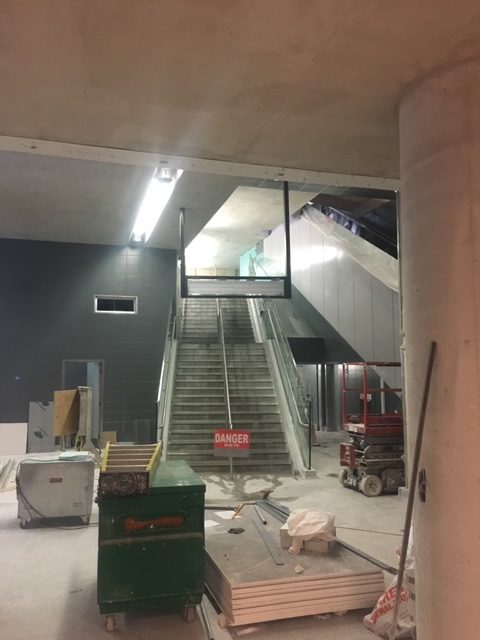Sebastian Gomez is a permits and approvals coordinator with the Toronto Transit Commission (TTC). He graduated in 2017 with a BES specializing in Urban and Regional Environments.
Where do you work and what do you do?
I work with the Toronto Transit Commission (TTC). My title is Permits and Approvals Coordinator. At the moment, I’m working primarily on capital budget projects for the TTC. One major project is the easier access project, which aims to make every station fully accessible according to Access for Ontarians with Disabilities Act (AODA) requirements by 2025. The other big project is the Second Exit projects. The goal of these projects is to provide every TTC station with a secondary exit in order to improve egress capacity. My role is getting all the permits and approvals to get a project off the ground: obtaining site approvals, working with Urban Forestry, the Toronto Region Conservation Authority (TRCA), and a myriad of different approvals from various municipal and provincial agencies.
When you are working on site plan approval, you’re working with the City Planning Department. So, there is a lot of back-and-forth between you, the planning department, and various other departments in the city. It is all about working out how a project is going to look and its interface with city right-of-way and with the environment around it.
Tell us your work journey after the degree: what went well? What was challenging?
My work journey began in my last semester of my degree, when I was taking courses in Urban Studies. Professor Doug Young had a former student working on the TYSSE Project, getting the Yonge -University line up into Vaughan. I applied to become a potential summer student within the third party planning approvals section, and I got that role in summer 2017. I worked on the project that summer, which is actually similar to what I’m doing at the moment. That work opened some doors at the TTC. After the summer role I worked part-time as I finished my studies. By the time I’d graduated I got in full time with WSP, a consulting firm. The project opened Dec 17, 2017. I continued to work on the project, and started as a full-time employee with WSP as a planner. In August 2018 I got the role I’m in today.
What went well: I met a lot of great people, was exposed to a ton of great experience working on a large project as well as various smaller but still important projects I’m working on today. I built relationships with TTC, WSP, and municipal agencies. It was definitely an initial stroke of luck to get recommended for that summer student role. From there, I worked hard and built my resume from experience working. It helped me get the right experience and move me forward.
How did you use what you learned? When did you feel like “I wish that they had taught me about this in university!”
Obviously I need to write a lot. I write E-mails, I am often making presentations. I have to write letters for different reasons and make planning justifications for applications. Learning planning theory has been really good. Thinking critically about things is something I was taught in first year and grew throughout my four years of the degree and has been vital.
What would I have appreciated learning more of? The more technical aspects of things. More of the foundations of planning practice, basic things about site plan, the functions by which a city implements or goes about urban planning such as the committee of adjustment, variances, site plan approvals. I would have benefited from some more practical planning education.
Thinking back to when you were in high school, what made you want to get into this? How does what you are doing match, and differ, from what you thought?
In high school I heard about the practice of urban planning and was lured to it as shaping the policies that shape the way the city grows over time. I was really interested in that, especially from a transportation standpoint. I grew up in the northwest of the city in Rexdale. How disconnected we are from a public transit standpoint drew my interest to transportation planning in particular.
As for how things differ: you always have an inflated idea of how things are going to look. I thought in urban planning I would be making wide sweeping decisions to re-zone an area or put in sweeping plans of how the city’s going to grow. I guess big broad-stroke decisions is how I looked at it. I realize now these are decisions made by elected politicians. My work is definitely more technical in nature and detail oriented, but I think I’ve found more of an interest in those things. The details of how a city functions and planning policy is drafted and put into place interests me now more as I understand how it really functions. Things aren’t as exciting but they definitely are rewarding and impactful in their own way. I think that’s something we can all relate to in whatever practice we end up in.
Any other advice for people thinking of an undergrad environmental/urban degree?
Don’t be afraid to take any classes. When I came into environmental studies I had urban planning in mind, but the faculty has a really wide set of information available. Environmental management, sustainability, urban/regional environments. Doing a little bit of everything was interesting and useful in its own way. Taking courses outside of the faculty was also an eye-opener and helped develop my skills in presentation, writing, data – I took history courses, urban studies courses. Go into things with an open mind, though obviously keep your goal at the forefront.


